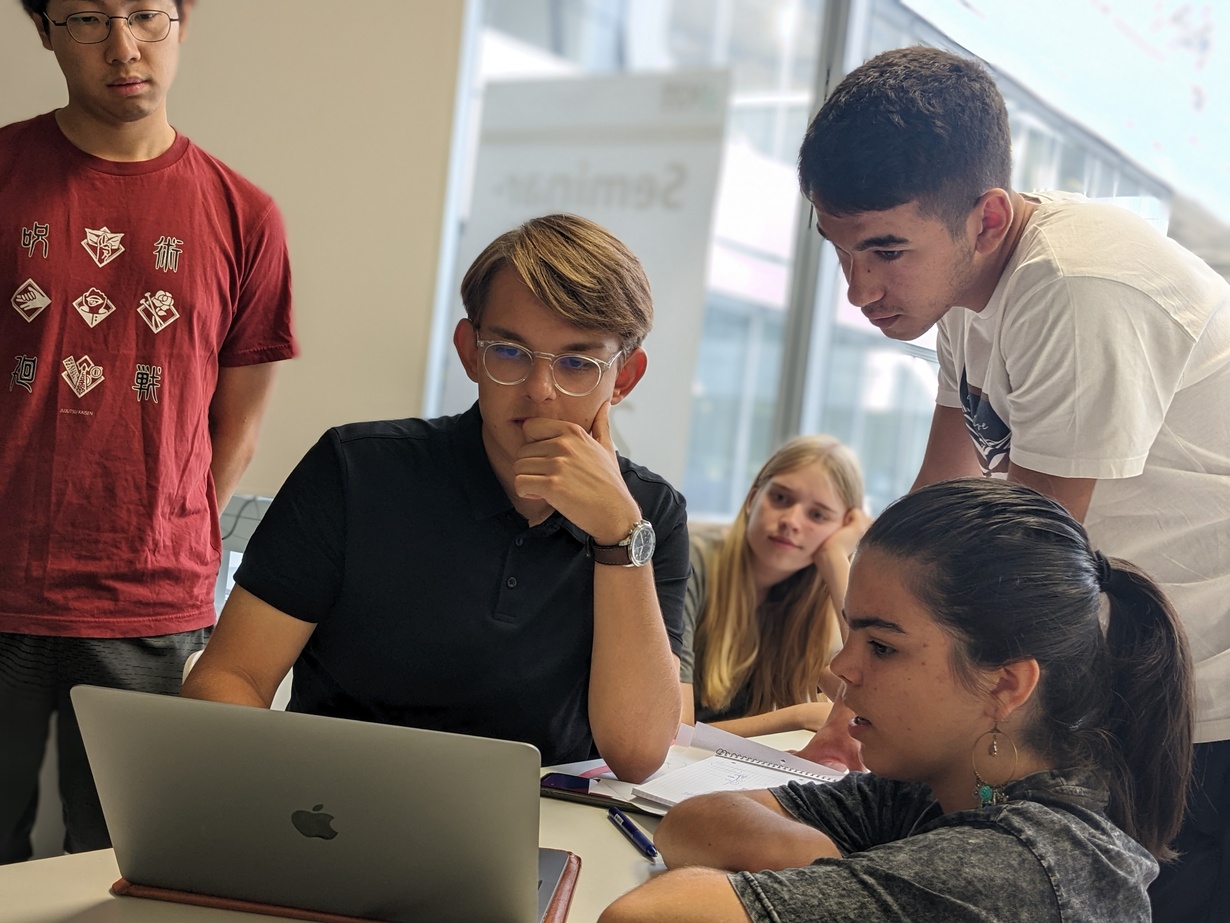Student assistant job advertisement
Do you enjoy helping students understand the relevance of mathematics in our everyday lives and do you like working in a motivated and committed team? Then you've come to the right place!
What is CAMMP?
CAMMP (Computational and Mathematical Modelling Project) is a project at the SCC of KIT. School pupils are taught mathematical modelling through independent exploration of problems from everyday life, research and industry using computers in various event formats.
Possible tasks
• Conducting and co-organising one-day workshops on mathematical modelling with school classes (CAMMP days)
• Conducting and co-organising one-week events on mathematical modelling with school pupils (CAMMP weeks)
• Developing and revising promotional and learning materials
• Other organisational tasks within the project
The number of hours is usually between 15 and 20 hours per month and can be flexibly arranged. Remuneration is based on the official rates of KIT.
The CAMMP Team
We are a team of four scientific staff members and seven student assistants. We work closely together as a team, and creative ideas and suggestions for improvement are equally welcome from everyone and are implemented with a willingness to experiment. The tasks can be carried out independently and flexibly in terms of time – studying always takes priority!
Your profile
You are a team player, reliable, creative, committed and sociable. You enjoy working with students on mathematical problems. You have basic programming skills (Python) or are willing to learn, and your German language skills are at least at B2 level. Then get in touch with us at katharina bata ∂does-not-exist.kit edu with an informal email and your CV. We look forward to meeting you in person!
Contact and further information about CAMMP
Katharina Bata Faculty of Mathematics Email: katharina bata ∂does-not-exist.kit edu Website: hdps://www.scc.kit.edu/forschung/CAMMP.php
Apply now for CAMMP week 2025!
The application period for CAMMP week 2026 has not yet begun – but we are already looking forward to receiving lots of exciting applications!
The application period runs from 10 February to 23 March 2026.
CAMMP week 2026 will take place from 14 June to 19 June 2026. This year, participants can once again look forward to an intensive and inspiring week at KIT, where they will work together on mathematics, conduct research and present their results.
We are eagerly anticipating the upcoming CAMMP week and welcome interested students, parents and teachers to find out more about the programme and keep an eye out for the start of the application period.
CAMMP Day with class 7c of Friedrich-Eugens-Gymnasium Stuttgart
On the Friedrich-Eugens-Gymnasium website, class 7c reports on its participation in CAMMP Day on the topic of social media. You can find the entire report here.

Register your school fund for a free one-day workshop at KIT at any time!
link
